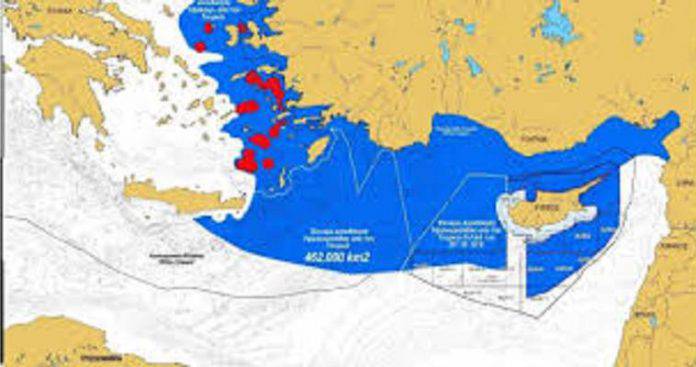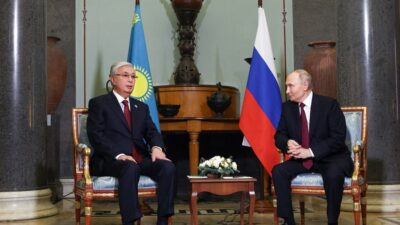Kostas Melas: How the Greek media cultivate phobic syndrome and appeasement
08/09/2020
With its over-aggressiveness, Turkey is seeking the role of regional power at all costs. Of course, the developments are not unfolding according to the plans of the small group around Erdogan who is currently the puppeteer pulling the strings in Ankara. The pursuit of the status of regional power, by Turkey, does not just fuel the phobic syndrome in Greece, but in general, it creates confrontations, tensions, and frictions with neighboring states, in stark contrast to Davutoglu’s “zero problems with neighbors” doctrine.
This pursuit, however, also complicates Turkey’s relations with major world powers. At the same time, the discovery of energy sources in the Eastern Mediterranean region and especially in the region of the Cyprus EEZ, has caused a frightening escalation of Ankara’s aggression against the Republic of Cyprus and Greece.
In the first case, the escalating aggression was expressed through specific acts: drilling inside the Cypriot EEZ accompanied by warships. The Turkish navy, in fact, at times literally encircles Cyprus with naval units (frigates, missile boats, and submarines). As for the aggression against Greece, it is no longer expressed only with continuous violations of airspace and overflights over Greek islands. Not even just with the unbelievable military rhetorical aggression. We also have the research of the Oruc Reis survey ship in a potential Greek EEZ.
The disastrous policy of “appeasement”
To this day, the Greek political leaderships are responding to all these challenges through actions that, in a broad sense, could be included in what has been called “appeasement” in international literature. Obviously, the term is connotative of negative meanings, especially after the Munich Agreement (September 1938). To avoid war then, France and Britain allowed German annexation of the Sudetenland.
The policy of appeasement pursued at the time underestimated Hitler’s ambitions and believed that adequate concessions would ensure lasting peace. Today, the results of those concessions are widely seen as a failed act of appeasement towards Germany, which in turn was a huge diplomatic triumph for Hitler.
In effect, the agreement not only facilitated the German occupation of Czechoslovakia but also led Hitler to believe that the Western Allies would not react by declaring war during the invasion of Poland the following year. The foreign policy of the British Prime Minister Neville Chamberlain has been inextricably linked to the events of that “Munich crisis” and to the policy of appeasement, resonating in the following decades as a parable of diplomatic failure.
These lessons are deeply rooted in Western foreign policy and in particular in political propaganda. Appeasement is conventionally defined as the act of satisfying certain requests-complaints through concessions, in order to avoid a military conflict. This policy used to be considered effective and honest. After the Munich Conference, however, it came to symbolize cowardice, failure and weakness. According to Winston Churchill, it is likened to “someone who feeds a crocodile, hoping to be eaten last”.
The phobic syndrome a consequence of appeasement
Among other things, one of the main problems of the policy of appeasement, when it is active for a long time, is that it constantly diffuses into society in such a way that the phobic syndrome swells and solidifies more and more, preventing the possibility of an alternative perspective. The main body of this diffusion in the Greek social body today is the choice of all kinds of media and social networks, invoking the name of information, to reproduce every day any news emanating from the leaders of Turkey, from Erdogan, the Ministers of Foreign Affairs and Defense, down to the very last consultant.
Every day, during the main viewing time in the Greek media, dozens of experts and non-specialists, Turkologists and Ottomanologists analyze and decide on everything that comes out of the Turkish side. Careers have been built this way. The unbridled gossip, the constant regurgitation of the same views, but also the attempt to predict developments diffuse with mathematical precision what the Turkish side wants: to instill fear in the social body.
I think it is time to reflect seriously on this issue and try to reverse this situation. Let the responsibility and restraint in public speech replace the unbridled gossip and superficiality in the reports of all kinds of journalists on such national issues that are of such crucial importance.





